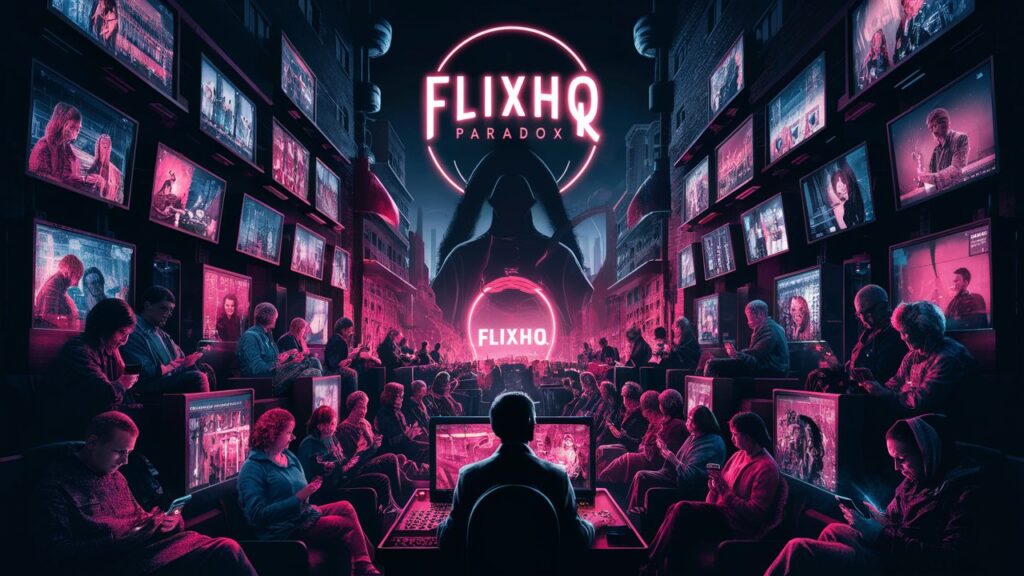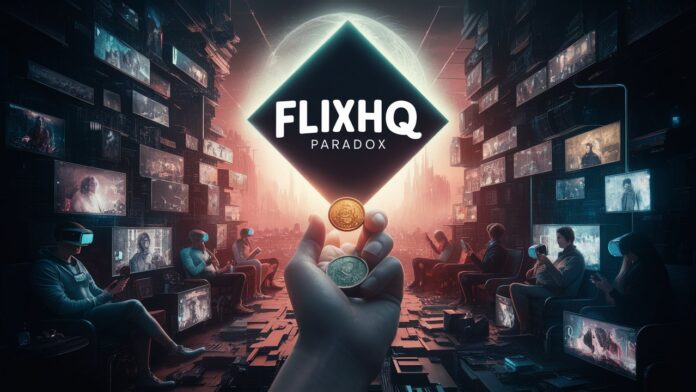Introduction
In today’s fragmented streaming landscape, FlixHQ emerges as a controversial magnet for viewers seeking zero-cost access to movies and TV shows. This platform bypasses paywalls and registration requirements, offering instant entry to an expansive—often pirated—content library. Yet beneath its alluring facade lurk significant legal ambiguities, security vulnerabilities, and ethical dilemmas. As global authorities intensify crackdowns on unauthorized streaming, understanding FlixHQ’s risks becomes crucial for informed digital consumption. This article dissects its operation model, jurisdictional perils, and safer pathways to entertainment.
1. What is FlixHQ? Unpacking the Platform’s Mechanics
FlixHQ operates as an aggregation hub for third-party video streams, compiling movies, TV series, and anime into a searchable interface. Unlike licensed services (Netflix, Hulu), it requires no subscriptions, logins, or payments, instead monetizing through invasive ad networks. Users navigate categories like “Recently Added” or “Trending,” clicking titles to access embedded players from external sources. The platform frequently cycles through proxy domains (e.g., .to, .ws, .pro) to evade shutdowns, redirecting users when blocks occur 610. This volatility underscores its unstable infrastructure—a core trade-off for free access.
2. Legal Gray Zones: Copyright and Jurisdictional Risks
FlixHQ occupies a precarious space in digital copyright law. While it doesn’t host content directly, it indexes pirated material from unlicensed sources, violating intellectual property rights. Countries like the U.S., U.K., Germany, Australia, and India actively block FlixHQ domains via ISP restrictions, with penalties ranging from fines to criminal charges for repeat offenders 28. Legal exposure isn’t uniform globally; some regions impose stricter enforcement than others. However, consuming pirated content—even passively—can trigger DMCA notices, bandwidth throttling, or lawsuits in stringent jurisdictions 710. This patchwork of regulations complicates user liability, making universal “safe use” impossible.
3. Security Threats: Malware, Data Harvesting, and Scams
The platform’s ad-dependent model creates fertile ground for cyber threats:
- Malware Distribution: Pop-up ads and “download” buttons often deliver spyware, ransomware, or trojans. Antivirus scans of FlixHQ mirrors frequently detect malicious scripts disguised as player updates 210.
- Data Tracking: Without HTTPS encryption or privacy policies, FlixHQ harvests user IPs, browsing habits, and device fingerprints. This data fuels targeted ads or is sold to third parties 711.
- Phishing Traps: Fake login pages mimicking Netflix or banks redirect users from ad pop-ups, stealing credentials 2.
🔍 Critical Risk: Security tools like uBlock Origin or NordVPN reduce but cannot eliminate these dangers due to FlixHQ’s inherent infrastructure flaws 10.
4. Access Workarounds: VPNs, Proxies, and Their Limits
To bypass geo-blocks, users often employ VPNs (e.g., UFO VPN, ExpressVPN). These tools mask IPs and encrypt traffic, theoretically anonymizing streaming. However, effectiveness varies:
- Server Selection: Connecting to “streaming-optimized” servers in less restrictive regions (e.g., Mexico, Indonesia) may improve access 10.
- Technical Flaws: Free VPNs frequently leak IPs or fail against advanced ISP detection, exposing users.
- Legal Caveats: VPN usage itself violates laws in countries like China or Iran, compounding risks 2.
Despite marketing claims, VPNs don’t legalize piracy—they merely obscure it.
5. Ethical and Industry Impact
FlixHQ’s model undermines creative economies:
- Revenue Drain: Piracy costs film industries $71+ billion annually, slashing budgets for original content 7.
- Unfair Labor: Crews, writers, and indie studios lose residuals when viewership migrates to illegal platforms.
- Centralization Fallout: Dominant studios (Disney, Warner Bros.) tighten copyright controls, fragmenting legal streaming further 37.
This cycle penalizes consumers long-term through higher subscription fees and reduced content diversity.

6. Top 10 Legal Alternatives
Safer platforms balance cost, content depth, and compliance:
| Service | Price Model | Key Strength | Safety Rating |
| Tubi | Free/Ads | 20,000+ titles | ★★★★★ |
| Plex | Free/Ads | User-curated libraries | ★★★★★ |
| Pluto TV | Free/Ads | Live TV channels | ★★★★★ |
| Peacock | Freemium | NBCUniversal originals | ★★★★★ |
| FilmRise | Free/Ads | Documentaries & classics | ★★★★★ |
| Hoopla | Library card | Ad-free films | ★★★★★ |
| Crackle | Free/Ads | Sony Pictures catalog | ★★★★★ |
| Popcornflix | Free/Ads | Cult/B-movie focus | ★★★★★ |
| Vudu | Free/Ads | 4K rentals | ★★★★★ |
| Kanopy | Library card | Arthouse & educational | ★★★★★ |
Sources: 246. Most offer ad-supported free tiers, with library cards (Hoopla, Kanopy) enabling zero-cost premium access.
7. Mitigation Strategies for Determined Users
If avoiding FlixHQ proves unfeasible, implement layered precautions:
- Ad Blockers: uBlock Origin + Privacy Badger reduce malicious pop-ups.
- Antivirus Software: Real-time scanning (e.g., Malwarebytes) quarantines drive-by downloads.
- DNS Filters: Tools like Cloudflare’s 1.1.1.1 block known malware domains.
- Browser Isolation: Use Brave or Firefox Focus for automatic tracker blocking 1011.
Never download “player plugins” or enter personal data—FlixHQ has zero customer support for scam victims 11.
Conclusion
FlixHQ epitomizes the tension between accessibility and integrity in digital media. Its pirate-based model delivers temporary convenience but perpetuates long-term harms: legal liability for users, revenue loss for creators, and normalized cyber-risk exposure. While VPNs and ad blockers mitigate surface-level dangers, they cannot sanitize the platform’s core illegality. Transitioning toward ethical alternatives—whether ad-supported free services or library-partnered platforms—preserves both user security and creative ecosystems. As streaming evolves, informed choices remain our strongest safeguard.
Frequently Asked Questions
Q1: Can I go to jail for using FlixHQ?
A: Unlikely for casual viewing, but fines or lawsuits are possible in strict jurisdictions (e.g., Germany). Distributing links or downloading content elevates penalties 7.
Q2: Does FlixHQ work on smart TVs?
A: Yes, via sideloaded browsers, but this exposes less-secure devices to malware. Legal apps (Tubi, Pluto TV) are TV-optimized 4.
Q3: Why does FlixHQ have so many pop-up ads?
A: Ads fund the platform. Since payment walls don’t exist, user data and ad clicks become the revenue engine 11.
Q4: Are “mirror” sites safer than the main FlixHQ domain?
A: No. Mirrors often harbor more malware due to lower moderation. Always verify URLs via community forums like Reddit 610.
Q5: What’s the biggest misconception about FlixHQ?
A: That “streaming” is legally distinct from “downloading.” Courts increasingly treat both as copyright infringement 8.

